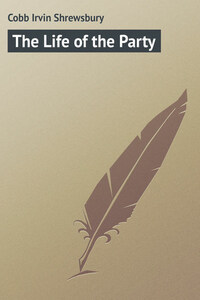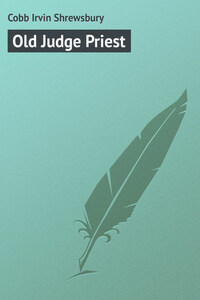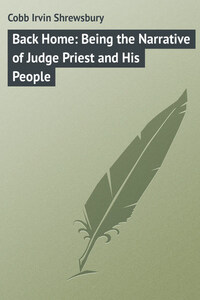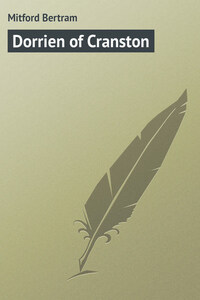CHAPTER I. WHEN THE SEA-ASP STINGS
BECAUSE she was camouflaged with streaky marks and mottlings into the likeness of a painted Jezebel of the seas, because she rode high out of the water, and wallowed as she rode, because during all those days of our crossing she hugged up close to our ship, splashing through the foam of our wake as though craving the comfort of our company, we called her things no self-respecting ship should have to bear. But when that night, we stood on the afterdeck of our ship, we running away as fast as our kicking screw would take us, and saw her going down, taking American soldier boys to death with her in alien waters, we drank toasts standing up to the poor old Tuscania.
I was one of those who were in at the death of the Tuscania. Her sinking was the climax of the most memorable voyage I ever expect to take. Five days have elapsed since she was torpedoed, and even though these words are being cabled across from London to the home side of the ocean, at least three weeks more must elapse before they can see printer’s ink. So to some this will seem an old story; but the memory of what happened that night off the Irish coast is going to abide with me while I live. It was one of those big moments in a man’s life that stick in a man’s brain as long as he has a brain to think with.
Transatlantic journeys these days aren’t what they used to be before America went into the war. Ours began to be different even before our ship pulled out from port. It is forbidden me now to tell her name, and anyhow her name doesn’t in the least matter, but she was a big ship with a famous skipper, and in peacetimes her sailing would have made some small stir. There would have been crowds of relations and friends at the pier bidding farewell to departing travellers; and steamer baskets and steamer boxes would have been coming aboard in streams. Beforehand there would have been a pleasant and mildly exciting bustle, and as we drew away from the dock and headed out into midstream and down the river for our long hike overseas, the pierhead would have been alive with waving handkerchiefs, and all our decks would have been fringed with voyagers shouting back farewells to those they had left behind them. Instead we slipped away almost as if we had done something wrong. There was no waving of hands and handkerchiefs, no good-byes on the gang-planks, no rush to get back on land when the shore bell sounded. To reach the dock we passed through trochas of barbed-wire entanglements, past sentries standing with fixed bayonets at entryways. When we got inside the pier our people bade us farewell at a guarded gate. None but travellers whose passports read straight were allowed beyond that point. So alone and unescorted each one of us went soberly up the side of the ship, and then sundry hours later our journey began, as the ship, like a big grey ghost, slid away from land, as quietly as might be, into the congenial grey fog which instantly swallowed her up and left her in a little grey world of sea mist that was all her own. After this fashion, then, we started.
As for the first legs of the trip they were much like the first legs of almost any sea trip except that we travelled in a convoy with sundry other ships, with warcraft to guard us on our way. Our ship was quite full of soldiers – officers in the first cabin, and the steerage packed with khakied troopers – ninety per cent of whom had never smelled bilge water before they embarked upon their great adventure overseas. There were fewer civilians than one formerly might have found on a ship bound for Europe. In these times only those civilians who have urgent business in foreign climes venture to go abroad.
I sat at the purser’s table. His table was fairly typical of the ship’s personnel. With me there sat, of course, the purser, likewise two Canadian officers, two members of a British Commission returning from America, and an Irish brewer. There were not very many women on our passenger list. Of these women half a dozen or so were professional nurses, and two were pretty Canadian girls bound for England to be married on arrival there to young Canadian officers. There were only three children on board, and they were travelling with their parents in the second class.
Except for a touch of seriousness about the daily lifeboat drill, and except that regimental discipline went forward, with the troops drilling on the open deck spaces when the weather and the sea permitted, there was at first nothing about this voyage to distinguish it from any other midwinter voyage. Strangers got acquainted one with another and swapped views on politics, religion, symptoms and Germans; flirtations started and ripened furiously; concerts were organized and took place, proving to be what concerts at sea usually are. Twice a day the regimental band played, and once a day, up on the bridge, the second officer took the sun, squinting into his sextant with the deep absorption with which in happier times a certain type of tourist was wont to stare through an enlarging device at a certain type of Parisian photograph. At night, though, we were in a darkened ship, a gliding black shape upon black waters, with heavy shades over all the portholes and thick draperies over all the doors, and only dim lights burning in the passageways and cross halls, so that every odd corner on deck or within was as dark as a coal pocket. It took some time to get used to being in the state in which Moses was when the light went out; but then, we had time to get used to it, believe me! Ocean travel is slower these days, for obvious reasons. Personally, I retired from the ship’s society during three days of the first week of the trip. I missed only two meals, missing them, I may add, shortly after having eaten them; but at the same time I felt safer in my berth than up on deck – not happier, particularly, but safer. The man who first said that you can’t eat your cake and have it too had such cases as mine in mind, I am sure of that. I can’t and I don’t – at least not when I am taking an ocean voyage. I have been seasick on many waters, and I have never learned to care for the sensation yet.














